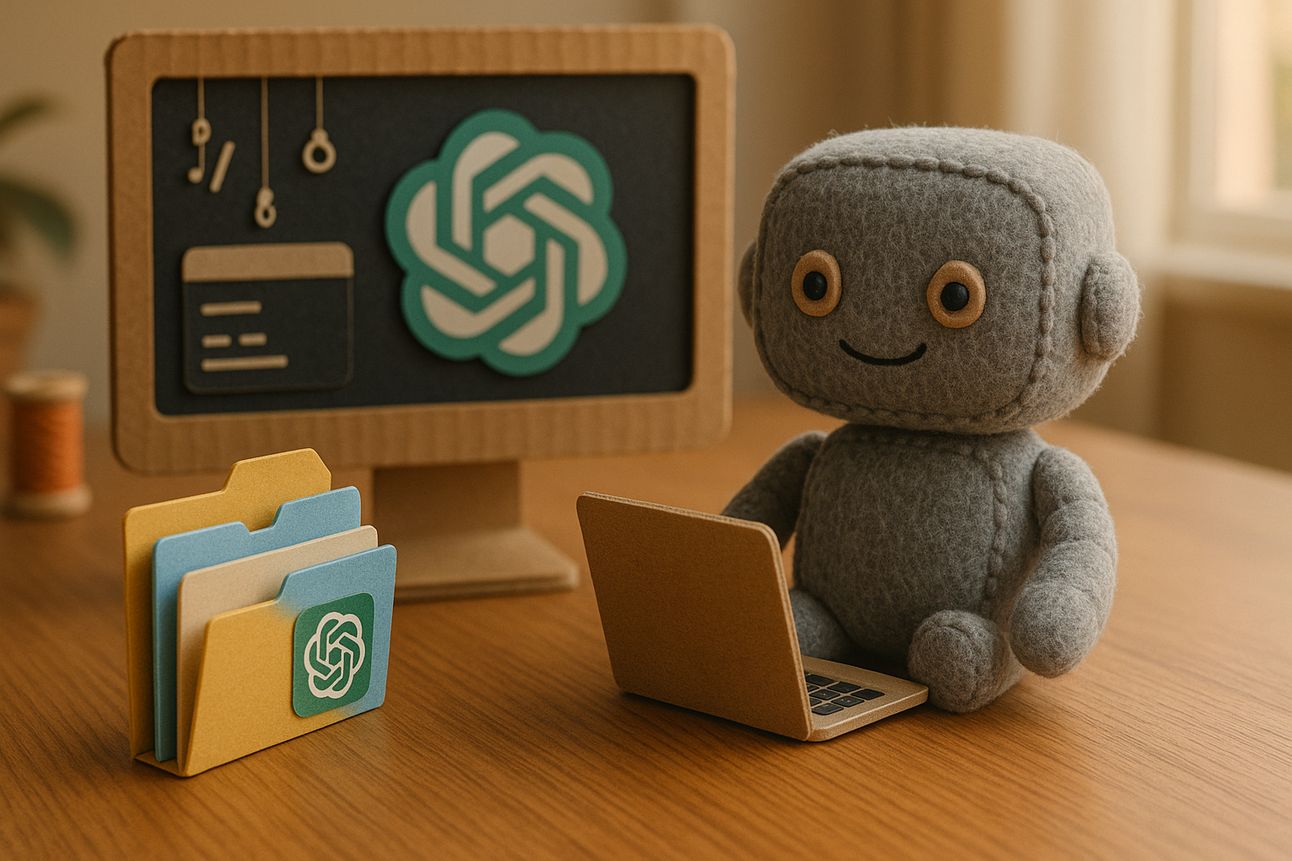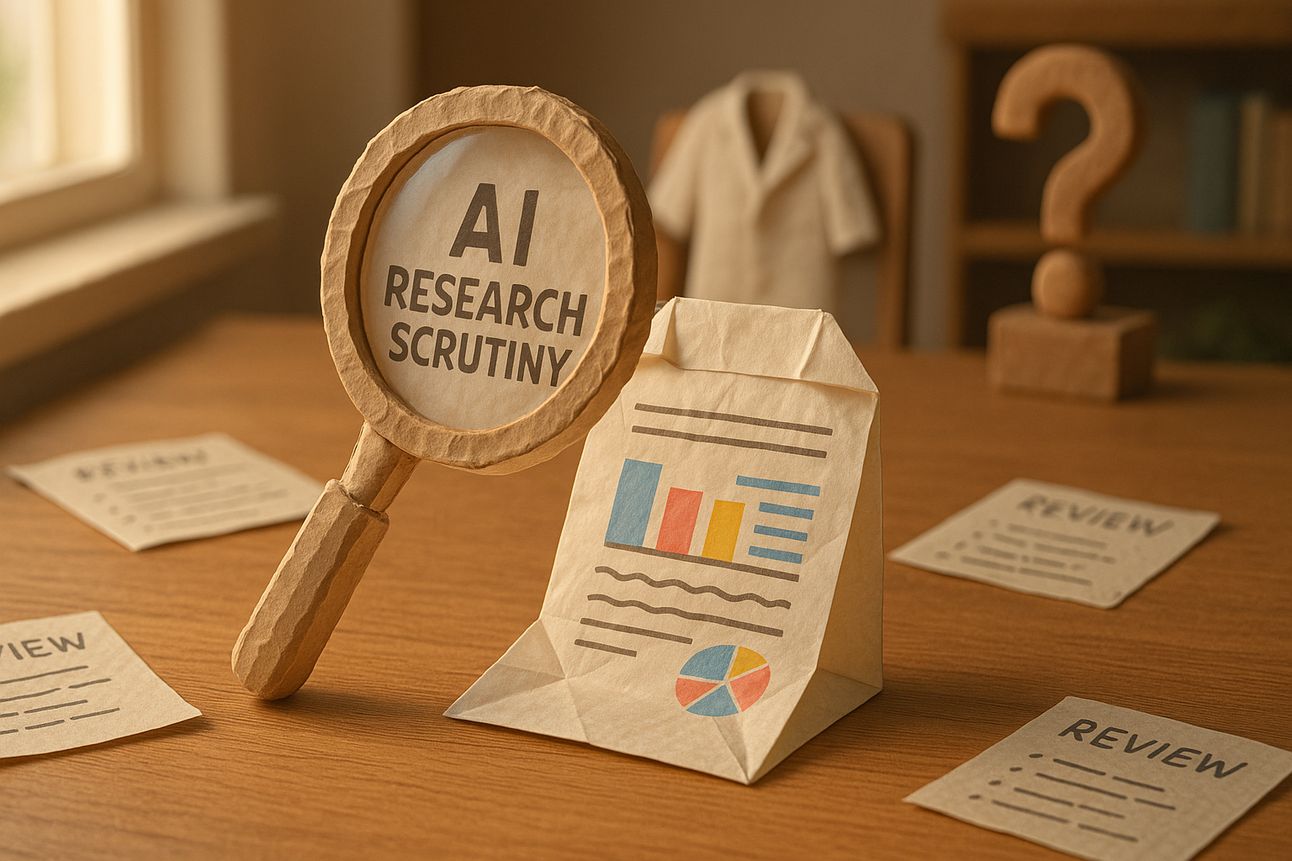- Today On AI
- Posts
- Codex Launches in ChatGPT: OpenAI’s Bold Bet on AI-Led Coding
Codex Launches in ChatGPT: OpenAI’s Bold Bet on AI-Led Coding
AND: MIT Retracts Widely Covered AI Paper Over Data Concerns

✨TodayOnAI’s Daily Drop
Codex Launches in ChatGPT: OpenAI’s Bold Bet on AI-Led Coding
MIT Retracts Widely Covered AI Paper Over Data Concerns
OpenAI’s planned data center in Abu Dhabi would be bigger than Monaco
💬 Let’s Fix This Prompt
🧰 Today’s AI Toolbox Pick
| 📌 The TodayOnAI Brief |
OPENAI

🚀 TodayOnAI Insight: OpenAI has launched a cloud-based software engineering agent called Codex, designed to give professional developers a safer, more autonomous coding assistant. Unlike previous tools, Codex can navigate directories, run commands, and debug code in a virtual environment—marking a pivotal shift in AI-assisted software development.
🔍 Key Takeaways:
Web-Based Developer Agent: Codex is now available via browser to ChatGPT Pro users, offering hands-on automation with a built-in virtual computer.
Beyond Code Generation: It can navigate file systems, execute shell commands, and test code independently—making it more capable than standard code-completion tools.
Clarity and Safety Built In: Trained to explain its actions and reduce opacity, Codex aims to tackle a key flaw in current AI coding tools.
Used by Leading Firms: Early adopters include Cisco, Superhuman, Kodiak, and Temporal, signaling growing enterprise interest.
Strategic Timing: Codex arrives just ahead of Google’s anticipated coding agent reveal and amid OpenAI’s reported talks to acquire Codeium-maker Windsurf for $3B.
💡 Why This Stands Out: Codex is more than a coding assistant—it’s a blueprint for how AI agents will reshape professional software engineering. By combining execution, explanation, and autonomy in a safe sandboxed environment, OpenAI is edging closer to its vision of ChatGPT as a full-fledged virtual coworker. Will we soon judge developer productivity not just by skill, but by how effectively they manage their AI teammates?
MIT, AI

🚀 TodayOnAI Insight: MIT has publicly disavowed a widely discussed AI research paper by former doctoral student Aidan Toner-Rodgers, citing a lack of confidence in its data and findings. The move follows internal concerns raised by leading economists and a formal review.
🔍 Key Takeaways:
The disputed paper claimed an AI tool significantly improved discovery rates in a materials-science lab.
It also reported that productivity gains favored already high-performing scientists, while overall job satisfaction declined.
MIT economists Daron Acemoglu and David Autor flagged concerns after being contacted by a skeptical computer scientist.
MIT concluded it could not verify the paper’s data or validity and has requested its removal from arXiv and withdrawal from Quarterly Journal of Economics review.
The author, Toner-Rodgers, is no longer affiliated with MIT and has not responded publicly.
💡 Why This Stands Out: This episode underscores the growing scrutiny around high-profile AI research and the need for transparency, especially when findings influence policy or media narratives. As AI’s role in science and labor accelerates, will academic institutions bolster oversight before publication rather than after?
OPEN AI

🚀 TodayOnAI Insight: OpenAI is partnering with Abu Dhabi tech giant G42 to build a colossal 5-gigawatt data center campus in the UAE—over four times larger than its U.S. Stargate site—cementing the region’s role in global AI infrastructure amid mounting geopolitical scrutiny.
🔍 Key Takeaways:
OpenAI will anchor a 5 GW, 10-square-mile data center in Abu Dhabi, one of the largest AI infrastructure builds to date.
The project is part of the Stargate initiative, a global joint venture with SoftBank and Oracle to deploy high-capacity AI campuses.
The UAE site will dwarf the 1.2 GW Stargate facility under development in Abilene, Texas.
G42, the UAE-based tech firm leading the build, has distanced itself from China ties following U.S. national security concerns.
Microsoft recently invested $1.5B in G42 and secured a board seat, reinforcing Western strategic influence in the project.
💡 Why This Stands Out: This development underscores the UAE’s rapid ascent as a key AI infrastructure hub—and OpenAI’s willingness to deepen cross-border ties in pursuit of compute scale. But it also reflects a growing tension between AI ambitions and national security, especially as Western firms navigate complex alliances with geopolitically sensitive partners. Can strategic decoupling from China ease concerns—or just shift the balance of risk?
| 💬 Let’s Fix This Prompt |
✨ See how a simple prompt upgrade can unlock better AI output.
🔹 The Original Prompt
"Generate blog ideas for a DIY home decor."
✅ The Improved Prompt
Generate 10 engaging blog post ideas for a DIY home decor blog. Focus on seasonal projects, budget-friendly hacks, and creative upcycling tips that appeal to beginners and intermediate crafters. Include a mix of tutorials, listicles, and room-specific makeovers.
💡 Why It's Better
Defines the audience (DIYers, beginner to intermediate)
Includes content types (tutorials, listicles, makeovers)
Focuses on themes proven to attract engagement (seasonal, budget, upcycling)
Improves specificity and variety for blog planning
🛠️ Learn how to adapt this prompt for SaaS, AI tools, dev teams & more →
Read the full PromptPilot breakdown
💡 Bonus Tool: Want to generate and master prompts instantly?
👉 Try PromptPilot by TodayOnAI (Free to use)
| 🧠 Smart Picks |
📰 More from the AI World
U.S. lawmakers have concerns about Apple-Alibaba deal
Microsoft’s Satya Nadella is choosing chatbots over podcasts
AI video startup Moonvalley lands $53M, according to filing
Google rolls out new AI and accessibility features to Android and Chrome
🧰 Today’s AI Toolbox Pick
🏠Reimagine Home (Interior Design Tool): Redesigns any space to match your vision or generates inspiring designs in seconds.
🐝BeeBee (Finance Tool): Makes financial reports and earnings calls easy to understand, delivering key insights for everyday investors.
🔊Talknotes (Audio Tool): Transforms spoken words into transcripts, blog posts, and video scripts.